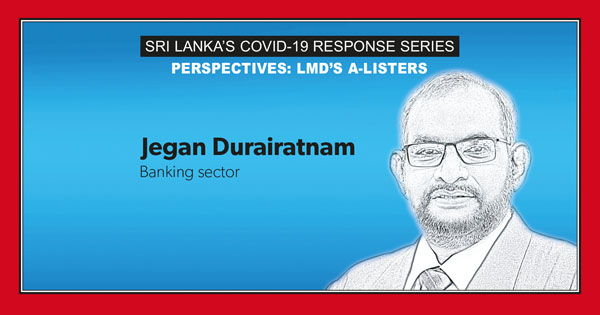KUDOS TO THE BUSINESS COMMUNITY
Q: As for state finances, should we print money despite the obvious repercussions and/or seek more funding from global lending institutions and other channels?
A: Though the rupee has depreciated, the government has taken hard albeit positive measures to stop non-essential imports. The government is also encouraging Sri Lankans to bring foreign exchange back to the country to strengthen the economy.
However, given the current market conditions, it is likely that the Sri Lankan Rupee will come under further pressure until exports improve. Printing money might appear to ease this burden but will cause the rupee to depreciate further and also lead to increased inflation.
Multilateral donor funding can be sought to manage short-term pressures on the currency. In the long term, we need greater leadership from the export sector to secure FDIs that are sustainable for a strong currency.
There should also be collaboration between industries to capitalise on opportunities emanating from this crisis. For example, we see more opportunities for exports in food, agriculture and tea with openings for rubber based products used by the medical fraternity as well. The government could also encourage and support local businesses that create import substitutes and curb the outflow of foreign exchange.
Q: What is the outlook for jobs and employment in the medium term? And how should the authorities address the prospect of rising unemployment?
A: Employment opportunities are likely to deteriorate at least in the first half of this year, particularly in the manufacturing and tourism industries. The income earning capacity of daily wage earners will be further challenged due to physical distancing; therefore, efforts should be made to sustain all sectors of the economy. Expect shifts to take place in human resources between different sectors as well.
Retaining employees should be a priority as far as possible to curb unemployment. Similarly, we may also need to consider reductions in remuneration in the short term, opportunities to reposition the existing workforce to match skill requirements across sectors, operational functions etc.
Authorities could identify and gather information on employment shortages, and work towards reskilling and repositioning the workforce. Special attention could be given to sectors such as IT, healthcare and exporters – this could not only accelerate economic recovery and growth but is likely to bring in more revenue for the country.
Financial and tax relief, and support schemes for Small and Medium Enterprises (SMEs), should also be considered in the recovery plans as sustaining business operations will be particularly difficult.
Q: What lessons have we – the business community – learnt from this crisis?
A: A new working order is emerging from this crisis. With these challenges, there have also been many opportunities and new possibilities. Undoubtedly, this is a steep learning curve for all of us and we will evolve together through the crisis.
We have recognised the importance of technology, and its ability to create opportunities for businesses and individuals; it is imperative to remain positive and stay alert to rapidly changing market trends, in these tough times for business and the economy.
It is encouraging that the business community has been sharing experiences and contributing in diverse ways to assist the government in the wake of this crisis. Not only here in Sri Lanka but across the world, companies are finding innovative ways to minimise the impact on public health, and limit disruptions to economies and supply chains.
Diversification across industries has helped reduce the adverse impacts and enabled business to remain resilient. This demonstrates the need to constantly adapt, and revaluate strategies and business models, and crisis management strategies.
Across the globe, discussions over the possible impact on business from climate change have taken place over the years. This crisis is a reality check that demands a change in the way we work and live to mitigate the possible adverse impacts on the environment.
Businesses will find it important to manage the triple bottom line: protect the environment; protect your people and the economy will protect itself. The fourth ‘P’, your processes, is equally important – they need to be sustainable, resilient and robust. We cannot manage the triple bottom line unless it is integrated with comprehensive processes.
[wprpw_display_layout id=2]





